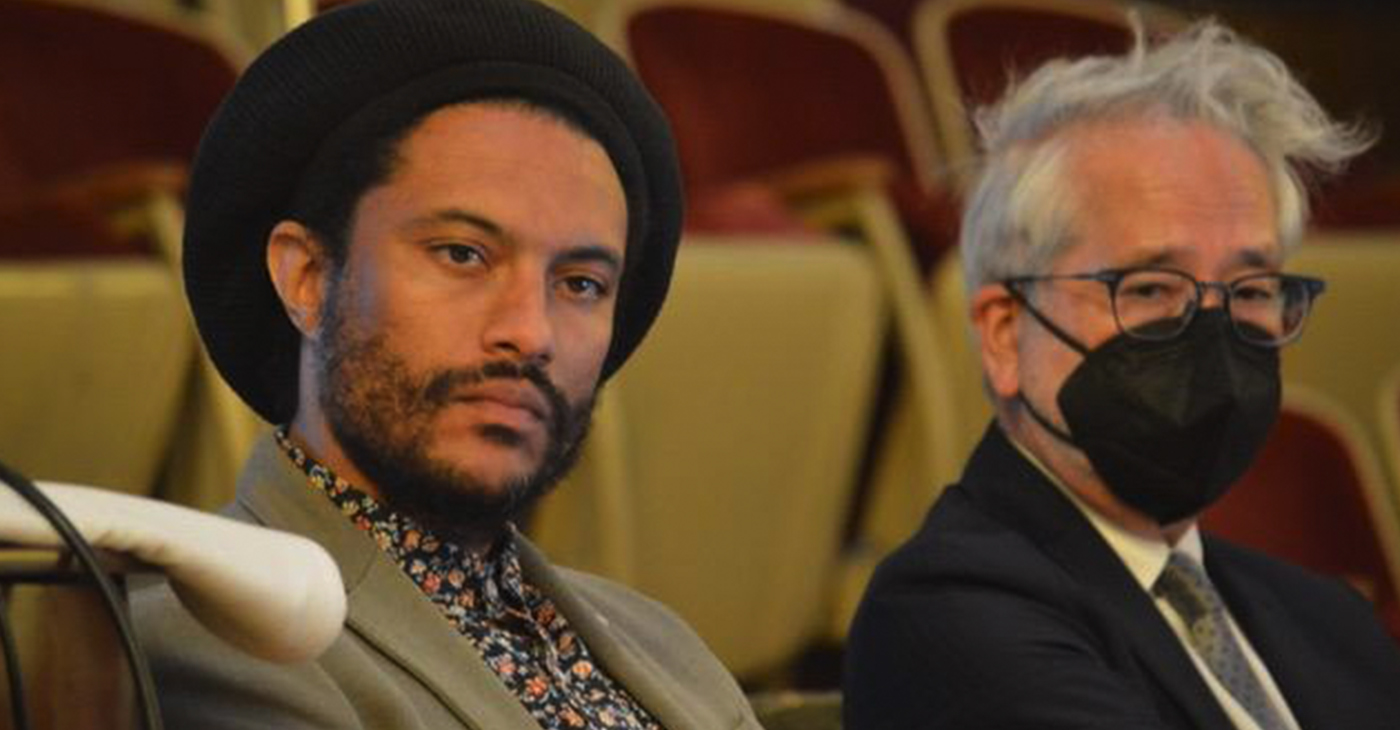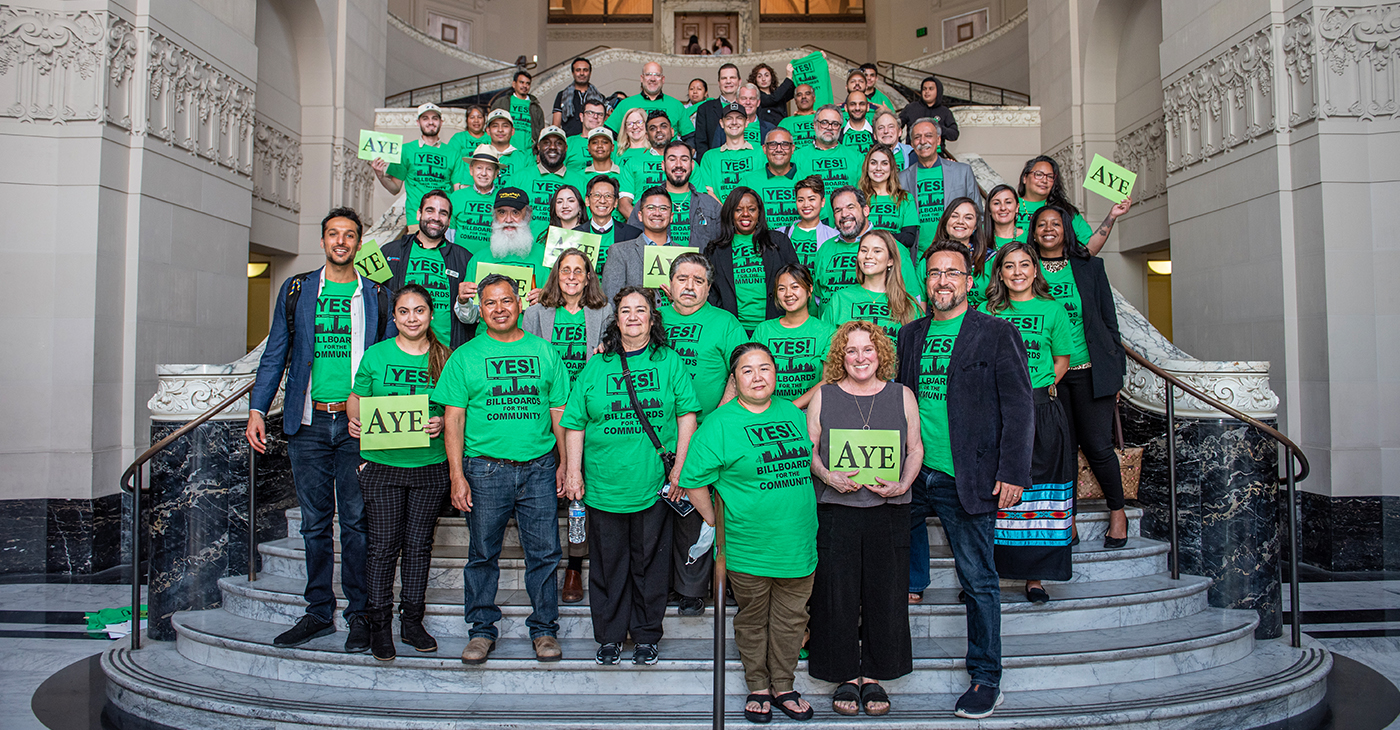Activism
Anchoring Organizations for Reparations Task Force Hold Public ‘Listening Sessions’
“This is one of two, free official-sponsored listening sessions that the task force has asked us to do,” said Chris Lodgson, an Elk Grove resident and CJEC member. “This will definitely help us get an accurate account (of the harms) done to Black people in this state.” CJEC is a state-wide coalition of organizations, associations, and community members united for reparations for the descendants of enslaved Black American men and women.

By Antonio Ray Harvey, California Black Media
The Coalition for a Just and Equitable California (CJEC), a reparations advocacy group, is inviting residents of Northern California to attend a “Listening Session” to discuss reparations.
The meeting will be held in Oakland on Saturday, May 28 from 1 p.m. to 4 p.m.
With the support of the California Task Force to Study and Develop Reparations Proposals for African Americans and the state’s Department of Justice (DOJ), the event, open to the public, will be held at the California Ballroom, located at 1736 Franklin St.
“This is one of two, free official-sponsored listening sessions that the task force has asked us to do,” said Chris Lodgson, an Elk Grove resident and CJEC member. “This will definitely help us get an accurate account (of the harms) done to Black people in this state.”
CJEC is a state-wide coalition of organizations, associations, and community members united for reparations for the descendants of enslaved Black American men and women.
The Oakland meeting is one of a series of listening sessions that will be hosted by Reparations Task Force anchor organizations across the state. Seven “anchor organizations” have been selected to partner and host the gatherings in conjunction with the task force.
The listening sessions are designed to ensure certain communities in the state provide their thoughts and concerns about the work the task force is doing.
Each organization will help the task force evaluate California’s role in slavery and Jim Crow discrimination — and follow that work up with developing resolutions to compensate African Americans for past and ongoing race-based injustices.
Task force members expected to attend the Oakland session are Dr. Jovan Scott Lewis, chair of the Department of Geography at the University of California Berkeley and vice-chair Dr. Amos Brown, a civil rights leader and pastor of Third Baptist Church in San Francisco whose journey to leadership started under the tutelage of Dr. Martin Luther King Jr. in the 1960s.
Lewis has just published the book, “Violent Utopia: Dispossession and Black Restoration in Tulsa.” Lewis, a Jamaican-born scholar, retells details of the 1921 Tulsa race massacre and paints a picture of its aftermath. His book traces the history of Black Oklahomans from the post-Reconstruction migration of formerly enslaved people to that state’s Indian Territory to contemporary efforts to rebuild Black prosperity.
The monograph focuses on how the massacre in Tulsa’s Greenwood neighborhood, colloquially known as “Black Wall Street,” diminished the spirit of freedom and derailed progress African Americans had begun to make.
Scott told Los Angeles-based Politics in Black, a podcast hosted by reparations advocates Chad Brown and Friday Jones, that his purpose is to listen to the residents of Oakland and supply them with background information about the Task Force.
The Task Force will submit its first report to the California Legislature in June. The 13-chapter document will detail the committee’s findings thus far and include recommendations related to them.
“It’s important to know that these are preliminary recommendations. The actual work of coming up with reparations recommendations is what we’re going to be doing for all the issues (for the final report in 2023),” Scott told Brown and Jones. “I am really looking forward to having the conversations that we will have over the next several months around compensation. Reparations are compensation, and from day one, my position has been cash-based reparations.”
Gov. Gavin Newsom signed Assembly Bill (AB) 3121 into law in 2020. California Secretary of State Shirley Weber authored the legislation establishing the task force when she was a member of the State Legislature. The committee is charged with studying slavery and its lingering effects on African Americans with a “special consideration” for descendants of persons enslaved in the United States, the bill language instructs.
AB 3121 also requires members to recommend what compensation should be, who should receive it, and how it should be paid. A panel of economists contracted by the task force will provide their perspective on the financial aspects of compensation and its impacts.
Lodgson also urges members of the community to “share their experiences” with anchor organizations such as the Black Equity Collective, Afrikan Black Coalition, Black Power Network, Congregations Organized for Prophetic Engagement (COPE), and Othering and Belonging Institute.
Marcus Champion, a board member for the National Assembly of American Slavery Descendants Los Angeles (NAASDLA) and CJEC will also speak at the listening session in Oakland.
Kellie Farrish, a professional Bay Area genealogist and member of the Association of Professional Genealogists, will join Champion at the session. She has 20 years of experience working with African American families descended from slavery, piecing together their broken family histories.
“These listening sessions are important and probably the center, the core part, of the task force’s community engagement process,” Lodgson said. “This is one of the more important ways that the community can learn about reparations in California. This is the way to get the word out to the people from seven organizations.”
The Listening Session at the California Ballroom is free. For more information, visit TWITTER: @cjecofficial or inquire at CJECOfficial@gmail.com
Activism
Oakland Post: Week of July 24 – 30, 2024
The printed Weekly Edition of the Oakland Post: Week of July 24 – 30, 2024

To enlarge your view of this issue, use the slider, magnifying glass icon or full page icon in the lower right corner of the browser window. ![]()
Activism
Oakland Post: Week of July 17 -23, 2024
The printed Weekly Edition of the Oakland Post: Week of July 17 -23, 2024

To enlarge your view of this issue, use the slider, magnifying glass icon or full page icon in the lower right corner of the browser window. ![]()
Activism
Community Celebrates Historic Oakland Billboard Agreements
We, the Oakland Billboard Economic Development Coalition, which includes Oakland’s six leading community health clinics, all ethnic chambers of commerce, and top community-based economic development organizations – celebrate the historic billboard agreements approved last year by the Oakland City Council. We have fought for this opportunity against the billboard monopoly, against Clear Channel, for five years. The agreements approved by Council set the bar for community benefits – nearly $70 Million over their lifetime, more than 23 times the total paid by all previous Clear Channel relocation agreements in Oakland combined.

Grand Jury Report Incorrect – Council & Community Benefit
We, the Oakland Billboard Economic Development Coalition, which includes Oakland’s six leading community health clinics, all ethnic chambers of commerce, and top community-based economic development organizations – celebrate the historic billboard agreements approved last year by the Oakland City Council. We have fought for this opportunity against the billboard monopoly, against Clear Channel, for five years. The agreements approved by Council set the bar for community benefits – nearly $70 Million over their lifetime, more than 23 times the total paid by all previous Clear Channel relocation agreements in Oakland combined.
Unfortunately, a recent flawed Grand Jury report got it wrong, so we feel compelled to correct the record:
- Regarding the claim that the decision was made hastily, the report itself belies that claim. The process was five years in the making, with two and a half years from the first City Council hearing to the final vote. Along the way, as the report describes, there were multiple Planning Commission hearings, public stakeholder outreach meetings, a Council Committee meeting, and then a vote by the full Council. Not only was this not hasty, it had far more scrutiny than any of the previous relocation agreements approved by the City with Clear Channel, all of which provide 1/23 of the benefits of the Becker/OFI agreements approved by the Council.
- More importantly, the agreements will actually bring millions to the City and community, nearly $70M to be exact, 23 times the previous Clear Channel relocation agreements combined. They certainly will not cost the city money, especially since nothing would have been on the table at all if our Coalition had not been fighting for it. Right before the decisive City Council Committee hearing, in the final weeks before the full Council vote, there was a hastily submitted last-minute “proposal” by Clear Channel that was debunked as based on non-legal and non-economically viable sites, and relying entirely on the endorsement of a consultant that boasts Clear Channel as their biggest client and whose decisions map to Clear Channel’s monopolistic interests all over the country. Some City staff believed these unrealistic numbers based on false premises, and, since they only interviewed City staff, the Grand Jury report reiterated this misinformation, but it was just part of Clear Channel’s tried and true monopolistic practices of seeking to derail agreements that actually set the new standard for billboard community benefits. Furthermore, our proposals are not mutually exclusive – if Clear Channel’s proposal was real, why had they not brought it forward previously? Why have they not brought it forward since? Because it was not a real proposal – it was nothing but smoke and mirrors, as the Clear Channel’s former Vice President stated publicly at Council.
Speaking on behalf of the community health clinics that are the primary beneficiaries of the billboard funding, La Clinica de la Raza CEO Jane Garcia, states: “In this case, the City Council did the right thing – listening to the community that fought for five years to create this opportunity that is offering the City and community more than twenty times what previous billboard relocation agreements have offered.”
Oakland Billboard Economic Development Coalition
| Native American Health Center | La Clínica de la Raza | West Oakland Health Center |
| Asian Health Services | Oakland LGBTQ Center | Roots Community Health Center |
| The Unity Council | Black Cultural Zone | Visit Oakland |
| Oakland African American Chamber of Commerce | Oakland Chinatown Chamber of Commerce | Oakland Vietnamese Chamber of Commerce |
| Oakland Latino Chamber of Commerce | Building Trades of Alameda County | (partial list) |
-

 Arts and Culture3 weeks ago
Arts and Culture3 weeks agoRooted in Tradition: The Intricate History of Black Hair Braiding
-

 Bay Area4 weeks ago
Bay Area4 weeks ago“I Will Not Be Bullied,” Says Oakland Mayor Sheng Thao
-

 Bay Area2 weeks ago
Bay Area2 weeks agoPG&E Increases Rates While Bay Area Households Are Struggling to Stay Afloat
-

 Business3 weeks ago
Business3 weeks agoGov Newsom: Raising Fast Food Minimum Wage to $20 Pays Off as Jobs Multiply in Industry
-

 Activism4 weeks ago
Activism4 weeks agoOpponents of Mayor Sheng Thao Are Calling on Her to Resign Following FBI Raid
-

 Community1 week ago
Community1 week agoHundreds Come to Jehovah’s Witnesses’ Assembly Hall for Three-Day Program of ‘Good News’ in Fremont
-

 Bay Area2 weeks ago
Bay Area2 weeks agoJuneteenth Mass Shooting Suspect Charge with Multiple Counts of Felony Assault by Alameda County DA Pamela Price
-

 Activism4 weeks ago
Activism4 weeks agoOakland Coliseum Sale to AASEG: A Model for Community Development and Inclusion

















































